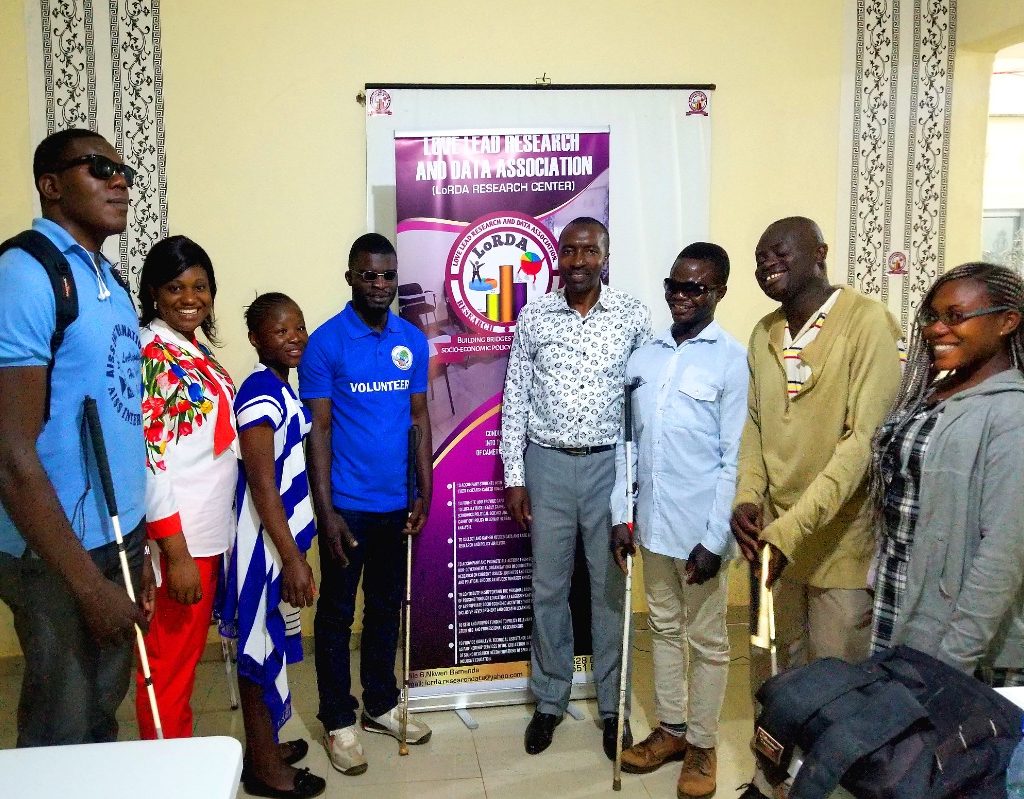Building bridges to informed socio economic policy making in Africa.
Project on the adaptive I.T. training for students with visual impairment.
Please Leave A Comment Below
Students with visual impairment (VIs) who have attained a level in their education that requires the research of study materials and project/dissertation/thesis writing are faced with many tough challenges. A very tiny and negligible portion of the needed study and research materials (such as literature and theories) are available in braille. They cannot read materials in print and a large proportion of them do not have the requisite computer knowledge adapted to access and read study and research materials. These stubborn challenges are posted as exclusionary factors; excluding students with VI from higher education requires a lot of research. Some of them who have braved these challenges to push through with research work have done so with the help of friends and family members, who help to read aloud print and soft research materials, and the type and arrange the research ideas. This could constitute a demerit to their independent-mindedness in research writing.
Mbiydzenyuy Louisa, a student with VI, using the computer for her first time.
Bafou stella, a student with VI, typing in MS Word for her first time
Mbuh Silas, a student with VI, mastering the PC computer
Zama Walters, a student with VI, being drilled on how to use google and e-mailing internet services.
This adaptive I.T. training for VIs was aimed to reverse all these challenges and enable the VIs to do many of the research-related tasks by themselves. The project was funded by Planted Streams, Athletico Sports Club (a community sports group), and Dr. Nkam Michael, and had a focus to train VIs in Tubah Sub-Division, Northwest Region, Cameroon. It ran from the 17th of February to April 2022, and we had eight (8) students with visual impairment who participated.
The project had the following specific learning outcomes:
- Enable the VIs to work with NVDA (Non-Visual Desktop Assistance); which assists them in navigating the computer and opening programs,
- Provide them a mastery of the computer keyboard,
- Enable them to type using MS Word, save and retrieve a saved document,
- Train them to be able to navigate the desktop to open programs, use my documents to save and open files/documents,
- Familiarize them with the computer shortcuts to copy, paste, bold, align text and use other important keyboard shortcuts like (find, go to commands, etc.),
- Train them to be able to perform grammar and spelling checks after typing text in MS Word,
- Train them to be able to convert PDF documents to MS Word documents for easy navigation and reading,
- Train them to be able to create new folders to save documents/files,
- Empower them with the knowledge to use the internet to search, download and save needed study and research materials, and
- Enable them to use e-mailing services; write, read e-mails, and reply to e-mails.
The students with VI were so eager and zealous to learn. The project ended successfully and all the funders were very satisfied with the training outcomes in terms of the I.T. knowledge gained by the student with VI.
One of the major setbacks was the limited number of available computer laptops. LoRDA made three (3) laptop computers available for the training, but given the number of VIs and the need for each of them to follow the training and practice individually, some LoRDA volunteers had to avail themselves our personal computers in every training session.
Expectations: let us not stop at Tubah Sub-Division in the Northwest Region, Cameroon has students with visual impairment undergoing higher education and requiring such training. In each of the ten (10) Regions of the country, we have such VIs. Our team of experts and focal points for VIs are ready and willing to go to other Divisions in the Northwest Region and even beyond the region to other regions in the country. Together, we can do this!

